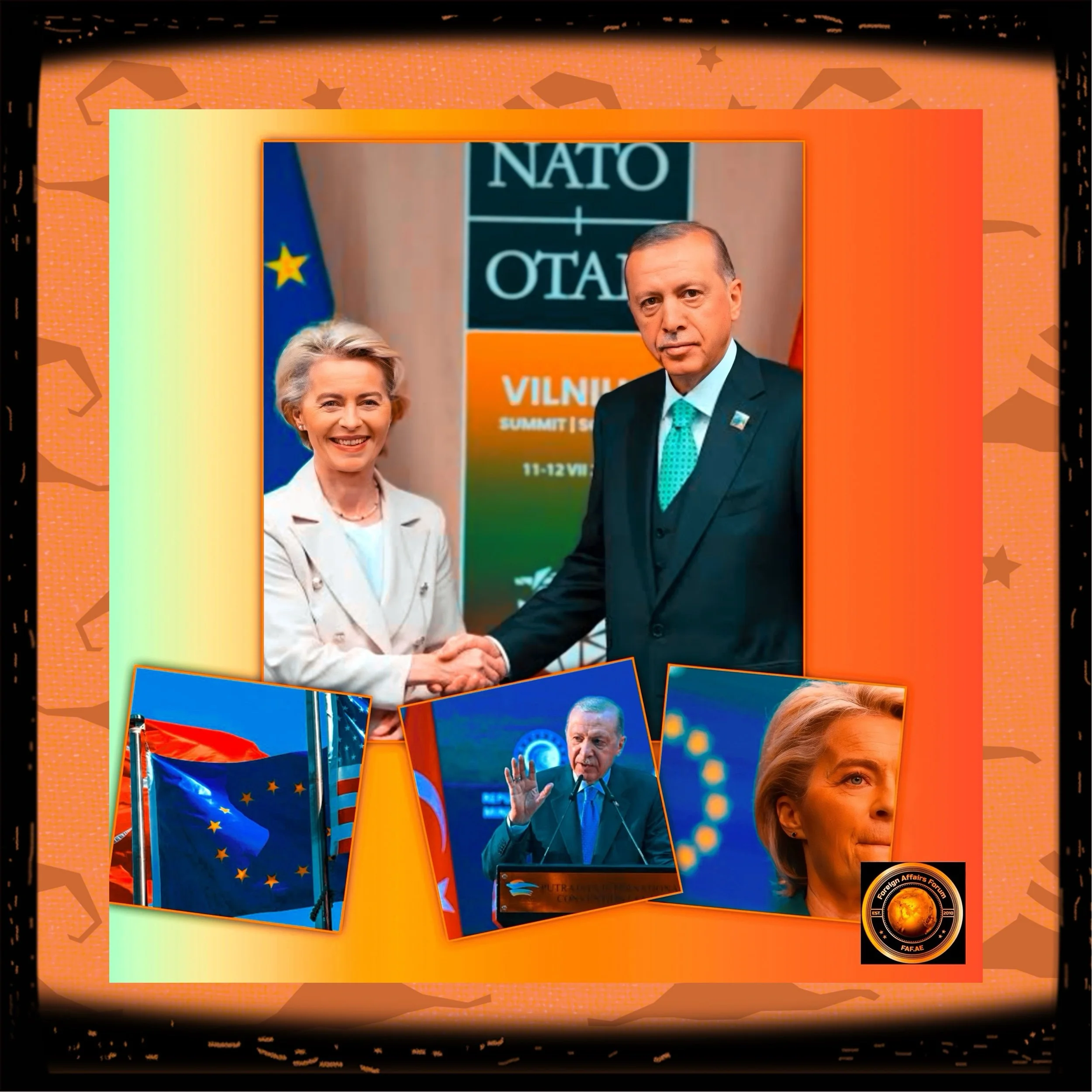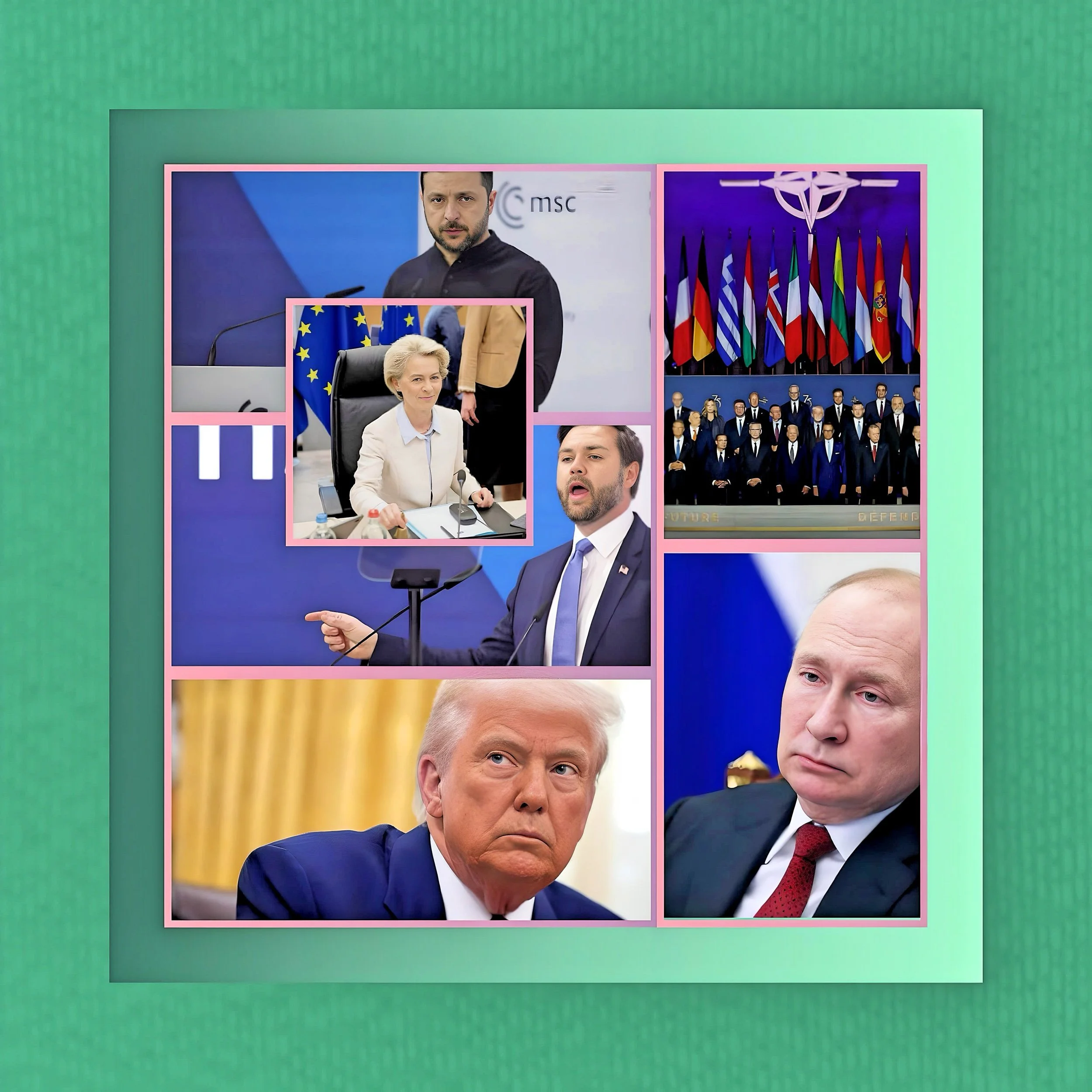Türkiye’s Defense of the European Continent? A Curse or boon
Introduction
Europe’s security architecture is undergoing a profound transformation, arguably its most significant since the territorial breakups and political transitions of the 1990s.
As the continent grapples with shifting US policies, the ongoing war in Ukraine, and the need for rapid military modernization, Türkiye has emerged as a potential key player in reshaping European defense.
But is Europe genuinely ready to embrace Ankara as a defender of the continent?
Europe’s Security Predicament
Europe faces an unprecedented security challenge characterized by multiple converging factors.
The war in Ukraine has exposed critical vulnerabilities in the continent’s defense capabilities and industrial base. As Friedrich-Ebert-Stiftung Chairman Martin Schulz noted, “Europe is in danger.
Some 80 years after the Second World War, geopolitics have once more morphed into armed conflict on our continent, claiming lives daily in Ukraine”.
This existential threat coincides with increasing uncertainty about America’s commitment to European security under the Trump administration.
The American pivot away from European defense has accelerated changes in transatlantic security policies, forcing European leaders to seek new sources of stability.
In response, European nations are scrambling to enhance their defense capabilities through initiatives like the ReArm Europe Plan.
However, these efforts face significant obstacles, including severe shortages of ammunition and equipment, outdated military assets, and a fragmented defense industrial base.
As Europe strives to become a more autonomous geopolitical player, it must confront the reality that its current security architecture—built primarily around NATO, the EU Common Security and Defense Policy, and the Organization for Security and Co-operation in Europe—requires substantial reinforcement.
Türkiye’s Potential Contribution to European Defense
Türkiye offers several compelling advantages as a partner in European defense. With NATO’s second-largest army, boasting nearly 400,000 ground troops and double that when reserves are included, Türkiye possesses a military force that dwarfs what Europe currently struggles to assemble.
Turkey's strategic location at the crossroads of the Black Sea, the Caucasus, the Balkans, the Mediterranean, and the Middle East provides crucial geopolitical leverage.
Beyond raw numbers, Türkiye brings extensive combat experience from decades of conflict with the PKK and military engagements in Syria, Libya, and Nagorno-Karabakh.
This battlefield knowledge has translated into a rapidly developing defense industry that produced $7.1 billion in exports in 2024.
Turkish defense innovations, particularly in drone warfare, have already proven effective in Ukraine, where Bayraktar TB2 drones helped destroy enemy armored columns and ships.
Türkiye also controls the vital Turkish Straits—the Bosporus and Dardanelles—which connect the Black Sea to the Mediterranean.
This strategic position gives Ankara unique leverage in regulating naval movement, a critical factor as tensions between Russia and NATO increase.
When Russia invaded Ukraine, Türkiye invoked the Montreux Convention and closed these straits to Russian warships, effectively limiting Moscow’s ability to reinforce its Black Sea Fleet.
European Hesitations and Institutional Barriers
Despite these advantages, Europe maintains significant reservations about fully integrating Türkiye into its defense architecture. One primary concern is Ankara’s independent foreign policy approach.
The Turkish government does not see itself as an inherently Western power but instead aspires to become a power center in its own right. This ambition manifests in Türkiye’s transactional approach to NATO and its balanced relationship with Russia.
While supporting Ukraine’s territorial integrity, Türkiye has refrained from imposing sanctions on Russia following the invasion. It maintains robust economic ties with Moscow in the energy, tourism, and trade sectors.
This dual approach allows Türkiye to act as a mediator but raises questions about its reliability in a European security framework primarily concerned with countering Russian influence.
Institutional mechanisms within the European Union also present barriers to Türkiye’s integration.
The European Defense Industry Strategy announced in March 2024 and the Permanent Structured Cooperation (PESCO) defense initiative have frameworks that explicitly exclude Türkiye.
The European Parliament’s White Paper on the future of European defense, dated March 12, 2025, also criticizes Türkiye over issues such as Cyprus.
Countries like France and Germany maintain skepticism about Türkiye’s role, with France viewing Ankara as a geopolitical rival rather than a partner.
The positions of Greece and the Greek Cypriot Administration further complicate Türkiye’s inclusion in institutional mechanisms of the new security and defense architecture.
Shifting European Perspectives
Despite these challenges, there are growing signs that Europe’s stance toward Türkiye is evolving in response to strategic necessity.
As Sinan Ulgen, a former Turkish diplomat and head of the Centre for Economic and Policy Studies (EDAM), observed, “European nations that believed they could afford to exclude Turkey now realize that such exclusion is no longer viable.”
This realization has led to several diplomatic overtures. Turkish Foreign Minister Hakan Fidan was invited to attend the March 2 security summit on Ukraine at Lancaster House in London, signaling a willingness to put aside entrenched European suspicion.
More recently, the EU leaders’ summit on March 20-21, 2025, included Türkiye in a video conference with the UK, Norway, and Iceland, where European Council President António Costa and European Commission President Ursula von der Leyen explicitly acknowledged the strategic role of key partners in Europe’s defense posture.
Polish Prime Minister Tusk has presented a “clear proposal” for Türkiye to assume significant shared responsibility for peace in Ukraine and regional stability.
A senior European diplomat noted that Türkiye possesses “critical perspectives” regarding the requirements for achieving peace in Ukraine.
Bilateral and Multilateral Partnerships Emerging
While institutional integration remains challenging, a more positive approach toward Türkiye is emerging through bilateral and multilateral partnerships.
Strategic alliances between Türkiye and countries such as the United Kingdom, Italy, and Spain in developing Turkish defense industry products demonstrate this trend.
The UK’s involvement in engine production for the Turkish fighter jet KAAN, Spain’s participation in the TCG Anadolu project, and Italy’s contribution to the ATAK helicopter initiative all contribute to Türkiye’s growing defense capabilities while facilitating technology transfer.
European countries interested in Turkish defense products reinforce Türkiye’s role in security and defense architecture.
Poland, Hungary, Sweden, and Finland, which consider Türkiye necessary for European security, promote a positive perception of Ankara’s potential contribution.
The recent acquisition of Italy’s Piaggio Aerospace by Baykar in December 2024 signals a fundamental shift in how Turkish defense companies see their role in Europe.
Conclusion
A Pragmatic Path Forward
Is Europe ready to accept Türkiye’s defense of the continent? The answer is nuanced. While full institutional integration faces significant barriers, strategic necessity drives a more pragmatic approach to security cooperation with Ankara.
Europe remains caught between recognizing Türkiye’s indispensable military capabilities and harboring concerns about its independent foreign policy and relationship with Russia.
One Turkish official observed, “Rather than incorporating Turkey in a piecemeal fashion, it would be more sensible for Europe to pursue partnerships comprehensively.”
A successful integration of Türkiye into European defense would likely follow a gradual, sectoral approach rather than a wholesale embrace.
NATO could prioritize mini-partnerships with Ankara in the Black Sea, working with Türkiye’s preference for regional cooperation with Romania and Bulgaria. The EU could foster collaboration in areas of mutual interest, such as Black Sea security, Caucasus stability, and defense-industrial cooperation.
The key challenge for Türkiye will be clarifying its stance toward Russia if it wishes to assume a more significant security role in Europe.
Ulgen explained, “The core of Europe’s security strategy hinges on perceiving Russia as a threat.”
Yet the pragmatic reality remains that in a multipolar world where Türkiye’s geopolitical portfolio is diversifying, European security without Türkiye would primarily constitute European geopolitics confined to the continent—potentially leaving Europe as a weak and fragmented actor in global power competition.
Europe’s readiness to accept Türkiye’s defense of the continent is evolving out of necessity rather than choice.
The path forward will require diplomatic finesse, pragmatic compromise, and a shared recognition that in today’s complex security environment, old divisions may need to yield to new strategic imperatives.





